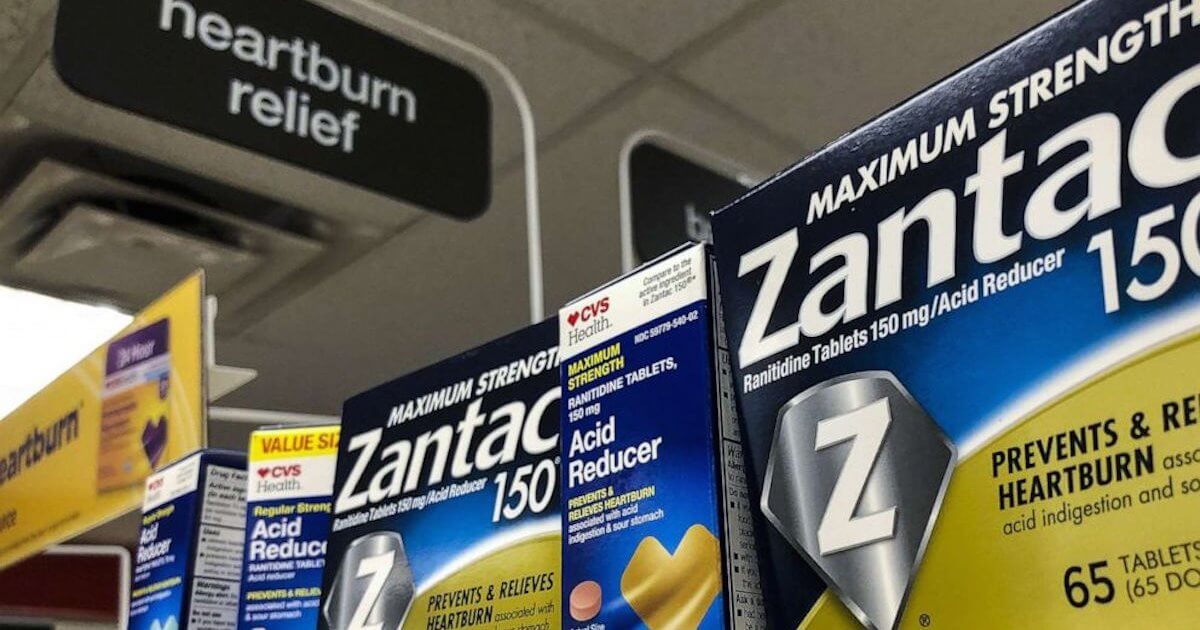The Zantac Recall: What You Need to Know
- If you are taking Zantac for heartburn, stop, says the FDA. They’re advising manufacturers to withdraw it from the market.
- An impurity in Zantac’s active ingredient, ranitidine, known as NDMA may be carcinogenic in higher levels.
- NDMA levels increase over time, especially when the product is stored at higher than room temperature.
- Safe over-the-counter alternatives include Pepcid, Tagamet, Nexium, and Prilosec.
RELATED NEWS Zantac Maker Recalls The Heartburn Drug After FDA Warning
Read MoreSurvivorNet spoke to Dr. Jamie Koufman, one of the country's leading experts in acid reflux and heartburn after the FDA’s initial warning in September 2019. She agreed, at the time, that patients should heed the warnings and switch to an alternative medication or method to alleviate heartburn, but emphasized the low risk. "In all my years treating patients, I have yet to see major side effects from Zantac," Dr. Koufman said. "But I'm not recommending it at this time.”
As a result of the FDA announcement, ranitidine products will not be available for new or existing prescriptions or over-the-counter use in the U.S. Consumers are directed to dispose of the product safely at home, following FDA guidelines and avoid drug take-back programs as much of the country remains under quarantine due to the COVID-19 crisis.
Walgreens and CVS pulled the drug off their shelves in late September 2019, as the FDA investigated Zantac. But some doctors have continued to prescribe the medication to patients.
What Now? Should I Worry?
If you’re taking Zantac — or a prescription version of the drug — now, the FDA is advising consumers to stop, dispose of the drug properly, and do not buy more. Patients taking prescription ranitidine should discuss an alternative with their doctor. The FDA says safer alternatives that do not contain ranitidine and, thus, do not carry the same risks from NDMA include:
- Pepcid (famotidine)
- Tagamet (esomeprazole)
- Nexium (Iansoprazole)
- Prilosec (omeprazole)
10 Things to Know About Zantac And How to Get Rid of Your Heartburn
- The generic drug name for Zantac is "ranitidine." The drug has been sold under various names, including Walgreens' generic version, which is called "Wal-Zan," no longer available in stores.
- Zantac is a type of drug called an "H2 blocker," which helps the stomach stop producing as much acid. Pepcid and Tagamet work the same way.
- Luckily, Zantac isn't the only effective heartburn drug out there. "The public should know that there are alternatives to Zantac," Dr. Iris Udasin, medical director of the Environmental and Occupational Health Sciences Institute's Clinical Center at the Rutgers School of Public Health said. "People can opt for the good alternative Pepcid (generic name Famotidine) to relieve heartburn or other issues of indigestion." People who regularly took Zantac before all of this should be able to easily switch to alternatives such as Pepcid, or to another alternative, Tagamet (generic name cimetidine). Both are available both over the counter and work essentially the same way and with the same efficacy as Zantac, but without the cancer-causing chemical risk.
- The concerning chemical found in Zantac, NDMA, is classified as a "probable carcinogen," meaning that it could cause cancer in humans. To date, there is only scientific evidence that the chemical causes cancer in animals, but testing in humans has yet to produce conclusive results.
- NDMA is also found in trace amounts in water and certain foods, including grilled meats.
- Zantac’s (potential) cancer risk is associated with long-term exposure to NDMA at high levels.
- Prior to the FDA’s April 1 announcement that manufacturers should withdraw the drug, Sandoz Inc. had recalled Zantac, and major pharmacy chains, CVS, Walgreens, and Walmart had pulled it off their shelves in the interest of protecting consumers while awaiting full results from the FDA and independent investigations. According to Dr. Michael Gochfeld, a professor emeritus at the Rutgers School of Public Health's Environmental and Occupational Health Sciences Insitute's Clinical Center. "There could be a basic risk assessment performed for any current or past Zantac use if the FDA released the levels of the cancer-causing chemical which it found in some samples of Zantac. However, the likelihood of determining if generic drugs of the same kind in the hands of the public now is contaminated will be difficult."
- While switching to another H2 inhibitor such as Tagamet or Pepcid is now recommended, the best way to treat heartburn is to adjust what you eat and when you eat it. "no medicine by itself can cure reflux," Dr. Koufman said. "It's all related to diet and lifestyle."
- The most important change you can make is the time at which you eat dinner. "The number one thing you can do is stop eating late at night," Dr. Koufman said. When you eat right before bed, then lie down with a full, undigested stomach, the acid is more likely to reflux into the esophagus, she said, explaining that gravity is an important part of digestion. Dr. Koufman recommends eating dinner earlier (around 6 PM) and then giving your stomach enough time to digest your food upright before lying down in bed. Cutting back on alcohol and soda can help with heartburn, too.
- During the COVID-19 crisis, the FDA recommends disposing of Zantac products safely at home, rather than using a drug take-back program, which could create a risk of coronavirus exposure.
Learn more about SurvivorNet's rigorous medical review process.


